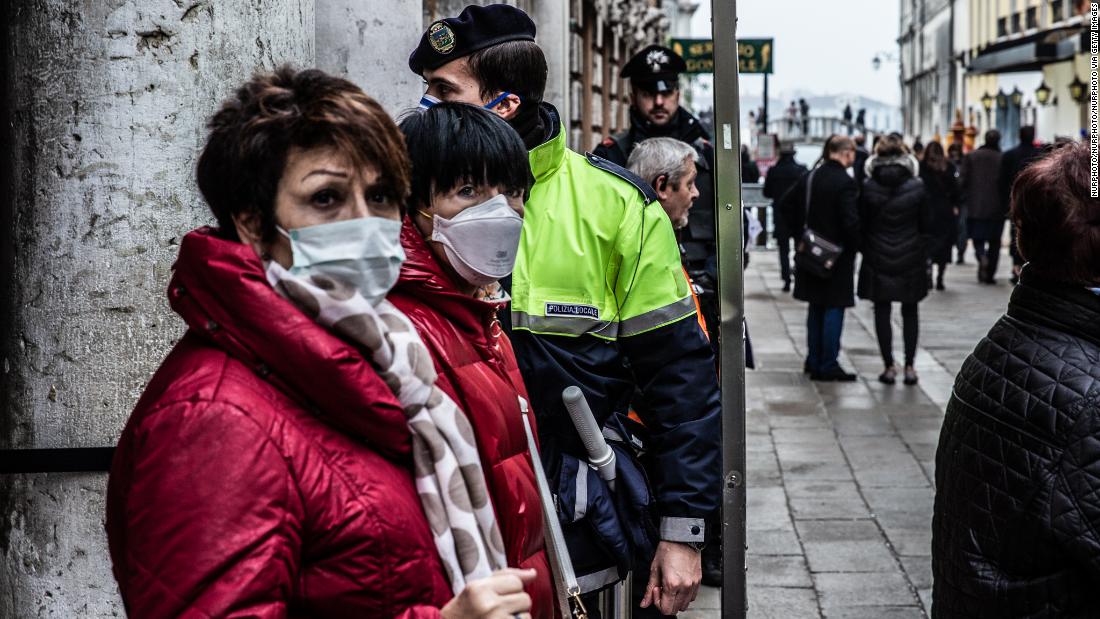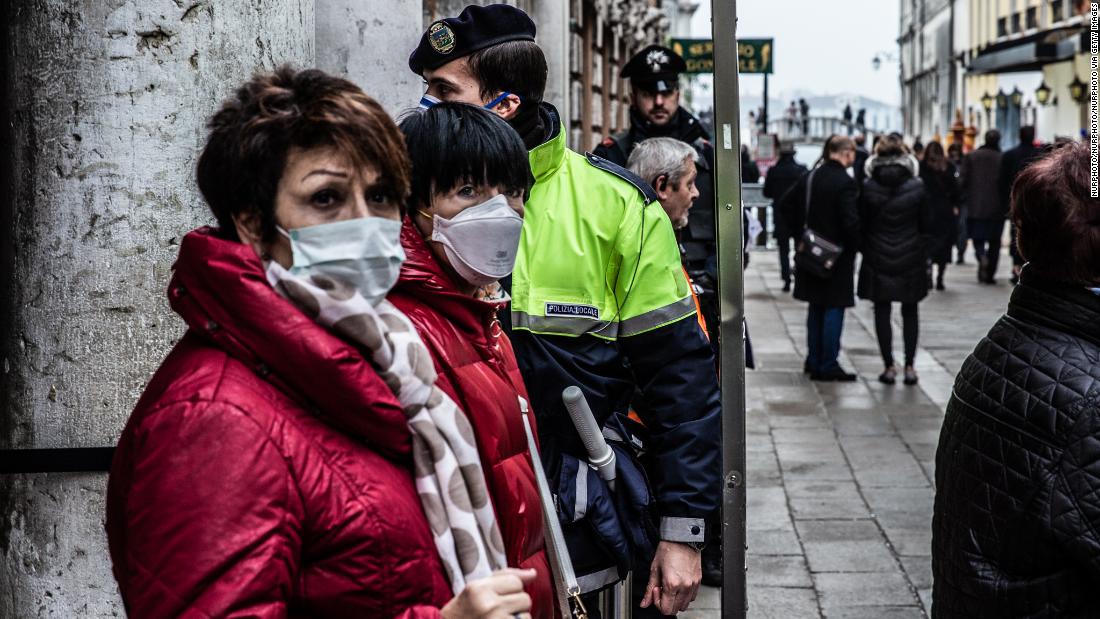[ad_1]

During a press briefing on Monday, Angelo Borrelli, head of the country’s Civil Protection agency, confirmed that five people have died and at least 219 others have been infected with coronavirus in Italy.
According to Borrelli, there are 167 cases in the northern Italian region of Lombardy.
“We still cannot identify patient zero, so it’s difficult to forecast possible new cases,” Borrelli said at another news conference on Sunday.
The Italian government has since taken “extraordinary measures” in a bid to control the outbreak, including a ban on public events in at least 10 municipalities and suspending the Venice Carnival.
These recent developments have left those preparing to visit the country with many questions.
So is it still safe for travelers to visit Italy?
Government precautions
Borrelli said at Monday’s press conference that it remains safe to travel to Italy, because the outbreak remains in a contained area and has not spread outside of it.
However, the towns of Codogno, Castiglione d’Adda, Casalpusterlengo, Fombio, Maleo, Somaglia, Bertonico, Terranova dei Passerini, Castelgerundo and San Fiorano in Lombardy and Vo’ Euganeo in Veneto are under lockdown.
This means around 10,000 people are banned from leaving or entering the affected areas without authorization. Meanwhile Italy’s Health Minister Roberto Speranza also announced the closure of public buildings and limited transport in these zones.
“We are asking basically that everyone who has come from areas stricken by the epidemic to remain under a mandatory house stay,” Speranza said at a Saturday press conference.
As a result, Italy’s top soccer league, Serie A, canceled at least three games scheduled to be played in Lombardy and Veneto regions.
While areas outside of the “hotpots,” such as Florence and Milan, are deemed safe to visit, two of the Veneto region’s 25 cases occurred in the popular tourist destination of Venice.
As a result, Venice Carnival has also been suspended, while museums and cinemas have been shut.
Luca Zaia, the governor of the Veneto region, has also confirmed a ban on public and private meetings, along with the closure of schools, universities and museums in the region.
“We ask for the cooperation of all citizens. It’s not an easy moment. But, with the data we have today, we can still hope to limit the contagion,” he said.
What do the authorities say?
Any travelers who are currently in these particular areas of Lombardy and Veneto are urged to follow the instructions of local authorities.
But while governments are “monitoring” the situation, travelers have not been advised against travel to Italy.
The developments in Italy, along with South Korea, where cases have surged past 600 in the last few days, has increased fears of a spike outside mainland China.
“Although the total number of cases outside China remains relatively small, we are concerned about the number of cases with no clear epidemiological link, such as travel history to China or contact with a confirmed case,” he said.
How is the virus being spread?
“When it comes to the global spread of outbreaks, air travel is usually how things kind of spread quickly from country to country,” says Furuya.
While face masks are often suggested as appropriate defenses to help avoid infections, experts say vigorous hand washing offers better protection.
CNN’s James Griffiths, Marnie Hunter, Barbie Latza Nadeau, Livia Borghese and Tara John contributed to this report.
[ad_2]
Source link

